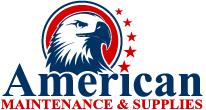A janitorial cleaning audit isn’t just a tool to confirm that customers are being served well, but also a method of ensuring that the business’s processes are firing on all cylinders.
Conducting routine janitorial cleaning audits is, ideally, an impartial and objective method of assessing whether the team is meeting or (hopefully) exceeding expectations; however, it’s also important that you, the facility manager, are in the loop when it comes to audits. You need to know that your cleaning service company is conducting them, and it’s not a bad idea for you to occasionally conduct an audit of your own.
Read on for a quick guide to conducting a janitorial cleaning audit, which will help you ensure that your janitorial service’s audits are both effective and thorough.
Step 1: Determine the Janitorial Cleaning Audit’s Goals
You know a janitorial cleaning audit should be conducted, but you’re not sure where to begin. The best place to start is to determine what you want to achieve through this audit. This is a discussion to have with the owner of your janitorial service.
Remember, the audit isn’t intended to show employees everything they’re failing to do. Instead, it should act as a motivator to help them improve their performance.
With that in mind, what do you want the audit to accomplish?
- Why are you auditing? Be sure that you make it clear to the staff that you’re not trying to catch them doing wrong, but rather trying to improve the client experience.
- What are the consequences of your findings? If you reward high performers and create a plan to re-train or penalize poor performers, the staff will understand that you’re taking the audit very seriously.
- What will you audit and when will it be audited? Determine ahead of time what areas you’ll audit routinely, and then decide upon a frequency. Do you want to audit a different area each week? Bi-weekly? Monthly?
If your janitorial company is large enough, supervisors will handle weekly inspections, but the owner or Operations Manager of the company should take the time to inspect at regular intervals. - How will you tell the staff the results of your audit? Beyond incentivizing the staff, a janitorial cleaning audit can also impact training processes. If you find a certain task is consistently not done properly across the board, you know that the issue doesn’t necessarily come from the staff, but rather an aspect of their training.
Ultimately, you want the audits to improve the results of the team’s efforts. With that in mind, avoid adhering to a rigid schedule— predictability will just train the staff to work extra hard on the days that they know they’ll be audited.
Step 2: Set Your Criteria for Janitorial Cleaning Audits
You’ve decided WHY you’re auditing the team’s work, but what criteria are you using to determine whether their work is up to par? It’s important that you work with the supervisors to determine the specifics for your inspections.
It’s important that you outline the qualifications of a properly cleaned room. Specificity is key— be sure to be as detailed as possible so that an auditor knows precisely what to look for when they enter a room.
When you share your findings with the staff, stay objective. Don’t speculate whether they did the work or not (“It doesn’t look like you wiped down the windows in the entryway”), but use specific examples to explain your findings (“I noticed a lot of fingerprints on the windows in the entryway. Please be sure to focus your efforts there in the future”).
Step 3: Create a Rubric
How will you “grade” the work you see? Some prefer a complex scale of 1-5, but that leaves a lot of room for subjectivity. One auditor’s 3 could be another auditor’s 2, so how do you ensure that the scale is fair and accurate?
The easiest way is to keep it simple. Pass or fail will eliminate any need for the auditor to try to decide between a random number, making it easier (and faster) for your auditors to make their assessment and move on.
If you need a more detailed rubric, you can weight tasks to reflect a higher level of difficulty or importance. Regardless of what you decide to do, it’s important that your auditors have a thorough understanding of it as well as the staff. It’s not fair to hold them to standards that they’re unaware of, so be sure that they’re posted prominently.
A truly professional janitorial service will conduct routine janitorial cleaning audits to ensure customer satisfaction and maintain strict business standards. American Maintenance’s onsite inspections and constant monitoring coupled with customer surveys help us correct any issue that arises immediately.

